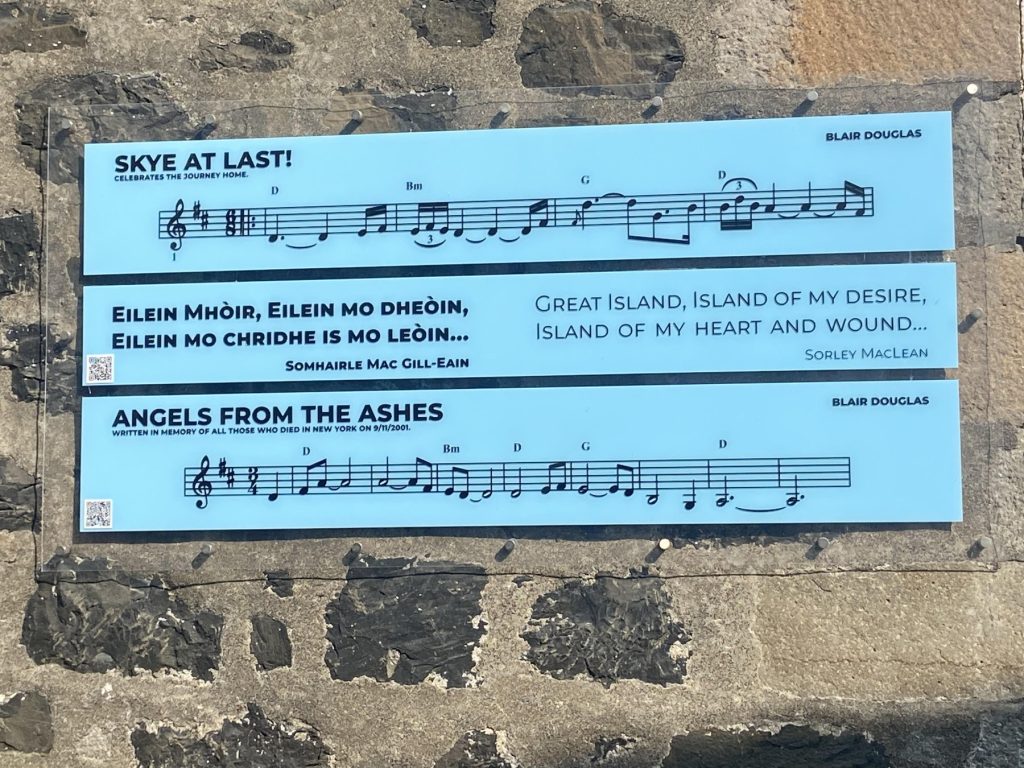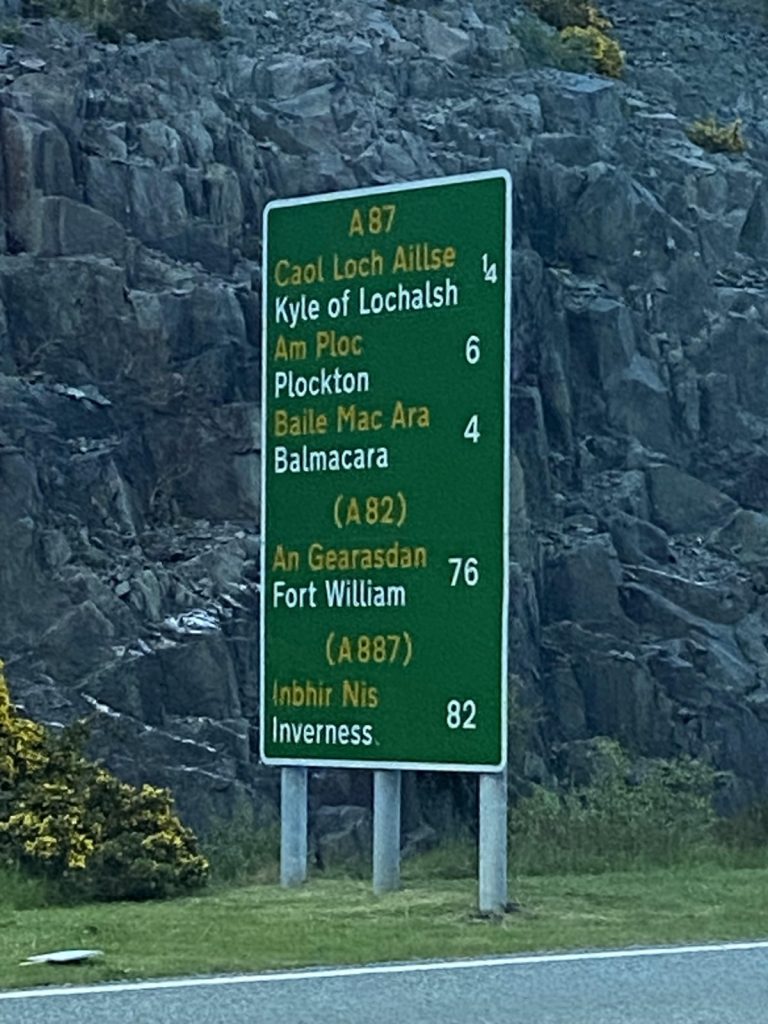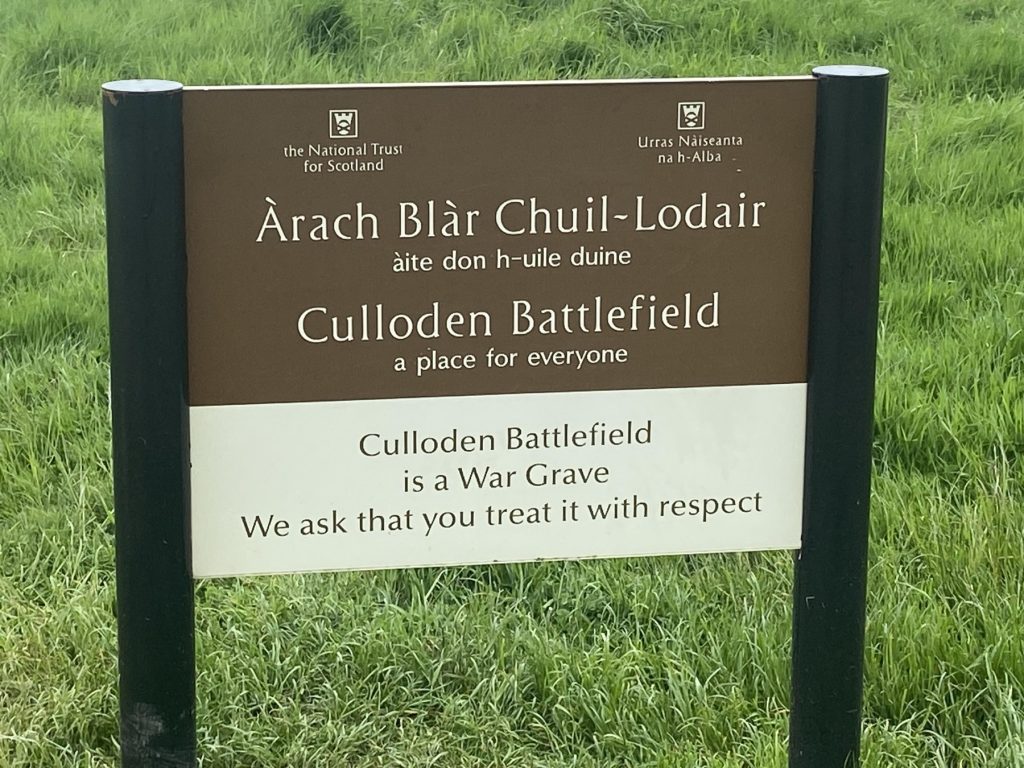Recently, I was fortunate enough to go on a study abroad program to the country of Scotland which was a wonderful trip and educational and perspective-changing in many ways which I had not expected. The obvious things we experienced have likely already come to your mind such as touring the University of Glasgow or Loch Ness and Urquhart Castle. Kilts, bagpipes, plaid – all those quintessential culture traits of the Scottish people – but you might not realize another important part of that culture is language. This goes beyond just the Scots-English dialect and extends to a much older language that had traditionally been spoken in most of what is now Scotland: Gaelic. Scottish Gaelic, also known as Gàidhlig, is a Celtic language with a rich history and cultural significance. Spoken primarily in Scotland, it holds a special place in the hearts of its speakers and has been a crucial part of Scotland’s identity for centuries.
The roots of Scottish Gaelic can be traced back to the Gaelic languages spoken by Celtic tribes in ancient times. As one of the oldest living languages in Europe, it has witnessed a complex evolution, influenced by Norse, English, and Scots languages throughout history. Despite facing challenges, including periods of suppression and decline, Scottish Gaelic has persisted, thanks to the resilience and determination of its speakers.
While traveling in Scotland you will start to notice it slowly. As previously implied it is not near as common as it once was. For me, it was first seen in The Lowlands at ScotRail train stations such as the one in the town of Dumfries where the station sign gives the town name in a Gaelic translation. As we traveled more into The Highlands it appeared much more with the majority of road signs and many business signs having Gaelic translations. While we were in Kyle of Lochalsh it was even written in on the local chinese takeout menus! As far as hearing it spoken and used, it was seldom but not absent in our trip having overheard it a few times from locals and tour guides through the Highlands and The Western Isles (Comhairle nan Eilean Siar in gaelic) from Skye to Inverness. Furthermore, as I had learned from our bus driver Andrew, who is a native of Skye, there is an active community trying to revitalize the language. Once more, I witnessed this at any hotel we stayed at while in Scotland as they all had the Channel BBC Alba which is a BBC news network channel dedicated to Scots Gaelic programming.
Overall it was an amazing experience that I had not expected which gave me a broad insight into another culture and its background!



